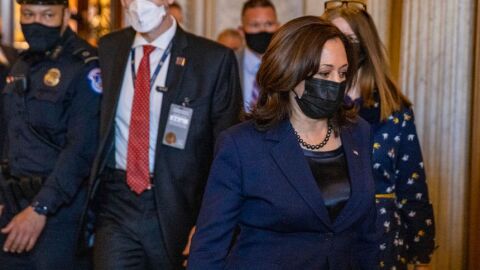A final vote is expected in the Senate in the next couple of days on the Biden administration’s federal COVID-19 relief bill. The latest negotiations have lowered the income eligibility for receiving a direct cash payment.
Sen. Sherrod Brown (D-Ohio) expects a "very close vote" when the measure comes to the Senate floor on Friday or Saturday. Still, he says the measure will still have significant impact.
"There will be somewhat fewer people getting cash payments. The payments are $1,400, but there's also money for small business," Brown says. "There's money for pensions to fix the multi-employer pension plans. There is help to make sure people aren't evicted from their homes in the middle of a pandemic in the middle of the winter. This plan goes big in helping communities and people and in parts of our country that are especially hurting."
The relief bill also expands the earned income tax credit and the child tax credit, both of which Brown has championed.
"One of the most important things in this bill is we will cut the child poverty rate in half by making the child tax credit fully refundable, and by increasing the earned income tax credit for workers who don't have children and for older workers that are in the workforce in their 50s and 60s," Brown says.
The U.S. House version of the bill passed without a single Republican vote, and it's likely that no Republican senators will vote on the final measure. Sen. Rob Portman (R-Ohio) criticized President Biden for the lack of bipartisanship, and said the bill contains too many items not related to COVID-19.
"When President Trump put a plan out, Democrats worked with him and came up with a bipartisan plan. It worked pretty well," Brown contends. "When President Biden put out a plan, Republicans didn't make any real effort to negotiate in good faith. They came in with a plan that was something like a third or a quarter of the size."
Portman and several other Republican senators met with Biden in February to pitch their own $600 million relief measure, but it offered smaller and fewer direct payments and lacked major elements like emergency funding for state and local governments.
"This bill is bipartisan, when you look at the fact that 65% or 70% of the general public supports this plan," Brown argues. "Republican senators don't. They're overwhelmingly against it. But Republican voters like this plan, Democrats, independent voters like this plan. Republican senators simply don't want to come to the table in any reasonable sort of way."
Brown blames Republican leadership, including now-Senate Minority Leader Mitch McConnell, for refusing to work with Biden.
"I think you saw Mitch McConnell back in 2010, said his number one goal was to make sure Barack Obama wasn't reelected. That seems to be the Republican playbook with a Democratic president," Brown said.
Still, Brown says he's hopeful that a "handful" of Republicans will join Democrats to pass the measure, which he emphasizes is popular among voters. If no Republicans support the measure, Democrats will need unanimous support to pass what NPR reports is one of the largest spending bills in U.S. history.
"They like the money in people's pockets. They like the vaccines in people’s arms. They like that we're investing in schools to reopen them, in jobs and unemployment benefits and help for small business," Brown says. "So there's overwhelming public support. I'm hopeful, the vote this Friday or Saturday, that Republican senators will actually reflect their states and vote for a plan that’s immensely popular around the country."





